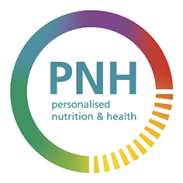
Work packages
The Personalised Nutrition and Health programme is organised in use cases and work packages. The use cases contribute to answering the business partners’ research questions and business objectives whereas the work packages tackle the scientific and technical challenges of personalised nutrition and health.
Work package 1: Measuring food intake and health
How can people measure their food intake and health status quickly, simply and accurately? This is the key question in WP-1 of the Personalised Nutrition and Health programme. The research gives companies insight into the possible applications of the various do-it-yourself measuring methods (or combinations of methods) already available or due to come onto the market shortly. Aspects such as user-friendliness, accuracy and reliability are taken into account.
Work package 2: Modelling data
Translating data on food intake and health status into advice that corresponds with someone’s personal preferences and lifestyle. This is the challenge in WP-2 of the Personalised Nutrition and Health programme. Data about the health status, eating habits and personal health goals of individuals are linked and translated into personalised advice. A strategy for situations in which data is incomplete is also developed.
Work package 3: Consumer behaviour
How can you ensure that people appreciate the value of personalised nutritional advice and follow it up, at specific times and in specific situations? This is the question under consideration in WP-3 of the Personalised Nutrition and Health programme. Psychological factors such as self-efficacy, the need for autonomy and sensitivity to the opinions of others are used to develop a series of communication strategies and test them in pilot studies.
Work package 4: Storing health data
Do-it-yourself measurements generate huge volumes of data about the health and lifestyle of individuals. This information must be accessible to the organizations offering personalised advice. At the same time, people’s privacy must be safeguarded and they must be able to decide which data they disclose. WP-4 of Personalised Nutrition and Health provides guidelines for a data storage system that complies with all these criteria.
Work package 5: Nutritional value data
Personalised nutritional advice depends on reliable, up-to-date, digital data about the nutritional value of products. In WP-5 of the Personalised Nutrition and Health programme, a strategy for retrieving this data from current databases is developed, with consideration for any company-sensitive information they may contain. Ways of dealing with contradictory data are also examined.
Work package 6: Business models and policy
Where are the greatest market opportunities for personalised nutrition and health concepts? Which business models are effective and why? How can you find out which strategy suits your company best? WP-6 of the Personalised Nutrition and Health programme analyses promising chain business models in conjunction with companies and experts featuring in the other WPs. Underlying assumptions (e.g. whether an app will lead a consumer to the healthier products in a supermarket) are tested to check the accuracy of the data in the models.
